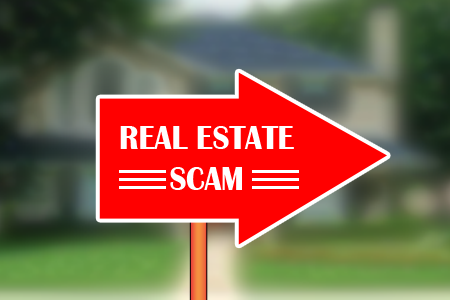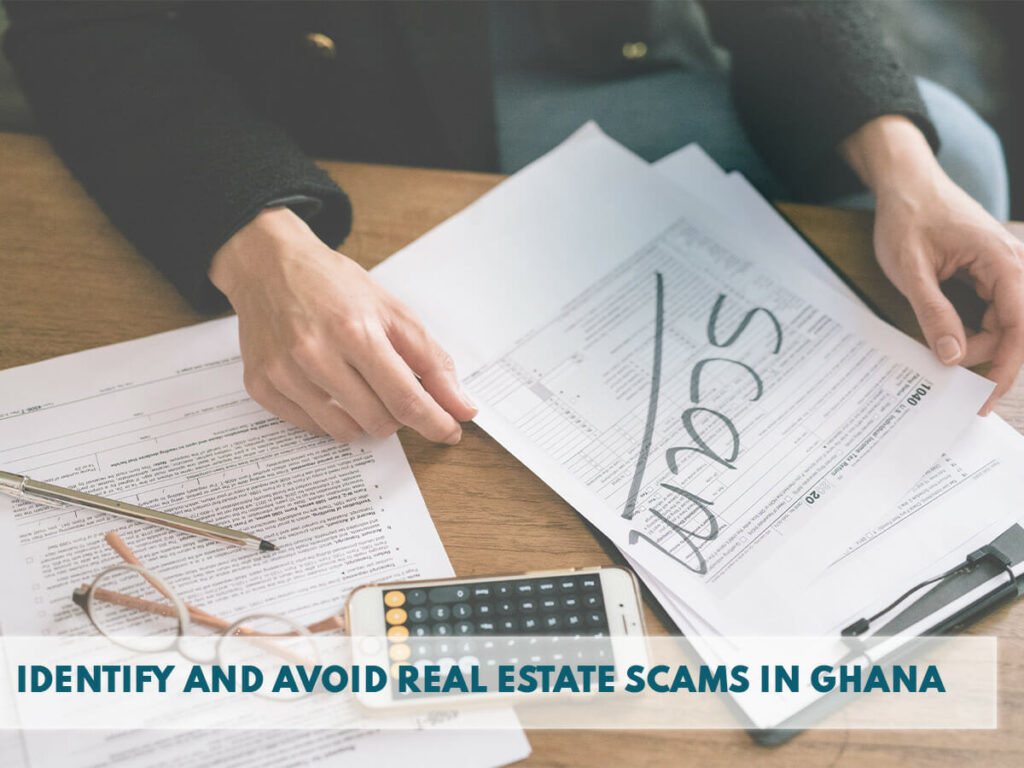Identifying and avoiding real estate scams in Ghana requires vigilance and thorough research. Here are some key steps to help you identify and avoid real estate scams:
Verify Property Ownership: Request proof of ownership from the seller or landlord. Cross-check the provided documents with official land records or the Land Commission to ensure the individual or entity claiming ownership is legitimate.
Physical Inspection: Visit the property in person and thoroughly inspect it. Be wary of deals where you are not allowed to visit the property or are provided with excuses to avoid an inspection.
Conduct Background Checks: Research the reputation and credibility of the seller, developer, or real estate agent involved. Look for reviews, testimonials, or any past complaints to assess their track record.
Be Skeptical of Unrealistic Offers: If an offer seems too good to be true, exercise caution. Scammers often entice victims with significantly low prices or promises of high returns on investment. Research the market value of similar properties in the area to ensure the offer is reasonable.
Use Professional Services: Engage the services of qualified professionals, such as lawyers, real estate agents, or surveyors. They can help you navigate the legal aspects, review contracts, and verify property information.
Avoid Upfront Payments or Cash Transactions: Be cautious if you are asked to make large upfront payments or if cash transactions are encouraged. Legitimate sellers or agents usually follow standard payment procedures, such as using bank transfers or escrow services.
Research the Developer or Construction Company: If you are purchasing property from a developer, research their history, completed projects, and financial stability. Ensure they have a good reputation and are registered with relevant regulatory bodies.
Beware of Pressure Tactics: Scammers may use high-pressure sales tactics to rush you into making a decision without proper due diligence. Take your time, thoroughly review all documents, and seek independent advice before committing to any transaction.
Verify Legal Documentation: Consult with a lawyer to review all legal documentation, including sale agreements, title deeds, building permits, and land lease agreements. Ensure they are authentic and accurately represent the property and its ownership.
Report Suspicious Activities: If you encounter or suspect a real estate scam, report it to the appropriate authorities, such as the Ghana Police Service, the Economic and Organized Crime Office (EOCO), or the Land Commission. Reporting can help protect others from falling victim to the same scam.

Remember, being cautious, conducting thorough research, and seeking professional advice are essential when dealing with real estate transactions in Ghana. If something seems suspicious or too good to be true, it’s important to proceed with caution to avoid becoming a victim of real estate scams.










